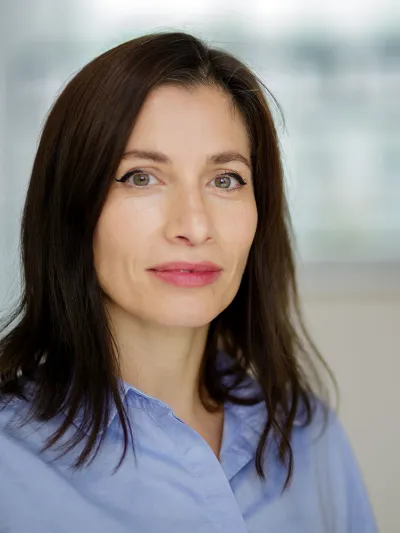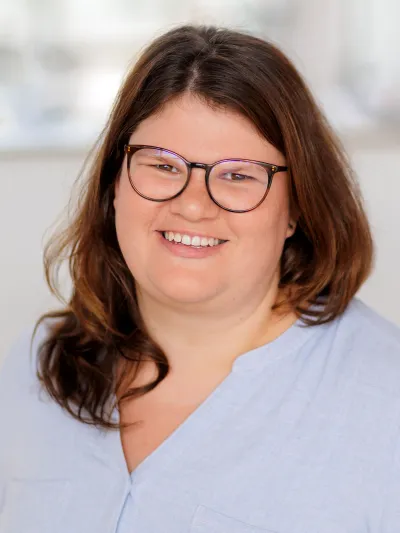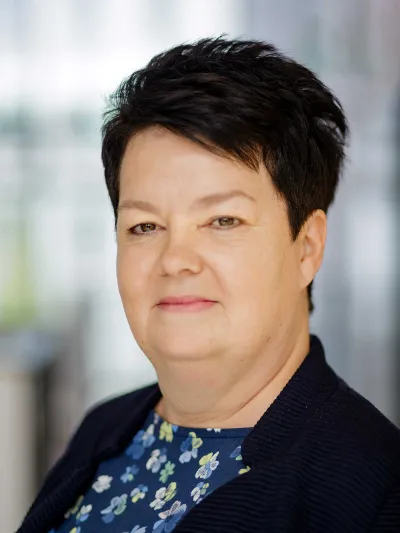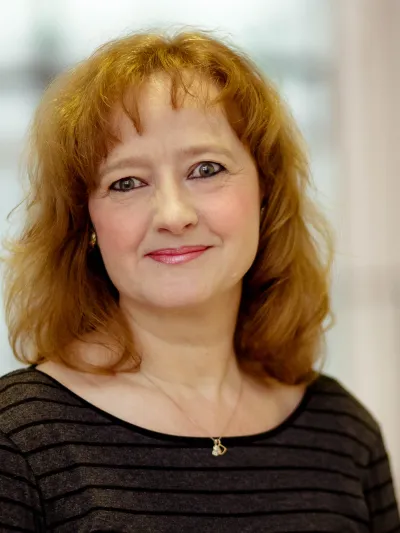The arts management and cultural work degree programme has a generalist orientation and combines cultural, media and social science issues with topics from business administration and management studies. It imparts theoretical and application-oriented knowledge and enables you to try out concrete work situations in projects.
Arts Management and Cultural Work (BA)
8 semesters
15/05 – 15/07 (restricted admission) | Dates of the selection interviews: 27/06 – 28/06 und 18/07 – 19/07
240 ECTS credits
Profile
Cultural work as the shaping of social and aesthetic processes
The study of arts management and cultural work prepares students for cultural mediating and producing fields of activity in the non-profit and profit sectors. It qualifies them to intervene and mediate at the interfaces of artistic production, public interest and the market. With us, cultural workers acquire an understanding of the historicity and dynamics of culture, can reflect critically on it and defend their own responsible actions in current debates with good reasons. The programme comprises four central teaching areas: Cultural and social change, culture and management, culture and mediation, media cultural work.
Is this degree programme right for me?
A central focus throughout the degree programme is on project work. As a cross-sectional discipline, it is represented by all teaching areas of the degree programme. The teaching of theoretical and practical basic knowledge is followed by implementation in practice. You develop a project idea in a working group and carry out the project on your own responsibility. This results in a wide variety of projects (exhibition, concert, discussion series, reading, etc.). International cultural work has been a special focus of the programme since its inception. Our study structure allows you to spend one or two semesters abroad.
You bring these qualities with you
- Interest in learning about cultural-political and cultural-historical, aesthetic-artistic and social discourses.
- Desire to learn the methodology of project work in order to use it to shape cultural and social processes of change.
- Intention to participate in these processes of change with one's own position
- Strong communication skills
- Ability to think and act in an interdisciplinary way
- Willingness to work both regionally and internationally
Podcast of the Campus Specialists
As campus specialists, Nicolai and Basti share insider knowledge about the arts management and cultural work degree programme. In addition to tips and information about the degree programme, they provide insights into student life at the University of Applied Sciences Potsdam.
Information day for prospective students on the 18th of June 2024
Would you like to get to know the course content better, talk to students and discover the campus? Come to the info day of the arts management and cultural work degree programme of the CITY | BUILDING | CULTURE department on the 18th of June!
Contact
The colleagues at the student counseeling service provide information to prospective students, first-year students, parents, teachers and students on all general questions about the degree programme. For specific questions and concerns about the bachelor's programme in arts management and cultural work, please contact the programme office.
Subject Counselling Service
Career Prospects
Career prospects
Career opportunities arise in the public cultural sector, with independent organisations, in the cultural industry and as a freelance entrepreneur.
Possible areas of application
- Project development
- Cultural mediation
- Management in cultural institutions and projects
- Media work
- Politics and education
- Marketing
In which professional fields do alumni and alumnae work?
Prof. Dr. Helene Kleine conducted two retention studies in which you can read about the professional fields in which alumni and alumnae of the arts management and cultural work degree programme work.
Study Content
Course of studies
The standard period of study for the full-time degree programme in arts management and cultural work is eight semesters and concludes with a bachelor of arts degree.
|
Foundation course: compulsory subjects |
|
| Semester 2 | Basic studies: compulsory subjects, compulsory electives |
| Semester 3 – 4 | Basic studies: compulsory subjects, compulsory electives, project work |
| Ssemester 5 | Practical course |
| Semester 6 | Advanced studies: compulsory subjects, compulsory electives, project work Optional: Semester abroad |
| Semester 7 | Main study period: elective seminars, project work |
| Semester 8 | Bachelor thesis, colloquium |
Study content
In the currently valid module handbooks, study and examination regulations and statutes, you will find the module overview, a detailed description of the modules and study contents, the study plan as well as the statutes for the implementation of the selection procedure for the study programme arts management and cultural work.
Teaching formats
- (Interdisciplinary) Seminars
- Lectures
- Exercises
- Workshops
- Reading courses
- Project work
- Excursions
- Colloquium
Compulsory modules
- Fundamentals of Cultural Work I: Culture and Work
- Fundamentals of Cultural Work II: Cultural Management
- Fundamentals of Cultural Work III: Media, Art and Mediation
- Cultural and social change
- Culture and Management
- Media cultural work
- Culture and mediation
- Contexts of cultural work
- Interdisciplinary Complement
- Bachelor Colloquium
Elective modules
- Aesthetics in Theory and Practice
- International Perspectives
- Project work
- Cultural and social change
- Culture - Communication - Economy
- Media Cultures
- Cultural translations
- Aesthetic processes and discourses
- Interdisciplinary supplement
- Profile module
Internship
In the 5th semester, you complete a 20-week compulsory internship in a practical field of arts management and cultural work.
Thesis
- Bachelor thesis
- Colloquium
Teaching areas
The programme comprises four central teaching areas, which are assigned to the professorships of the programme. Other teaching areas are the responsibility of all lecturers.
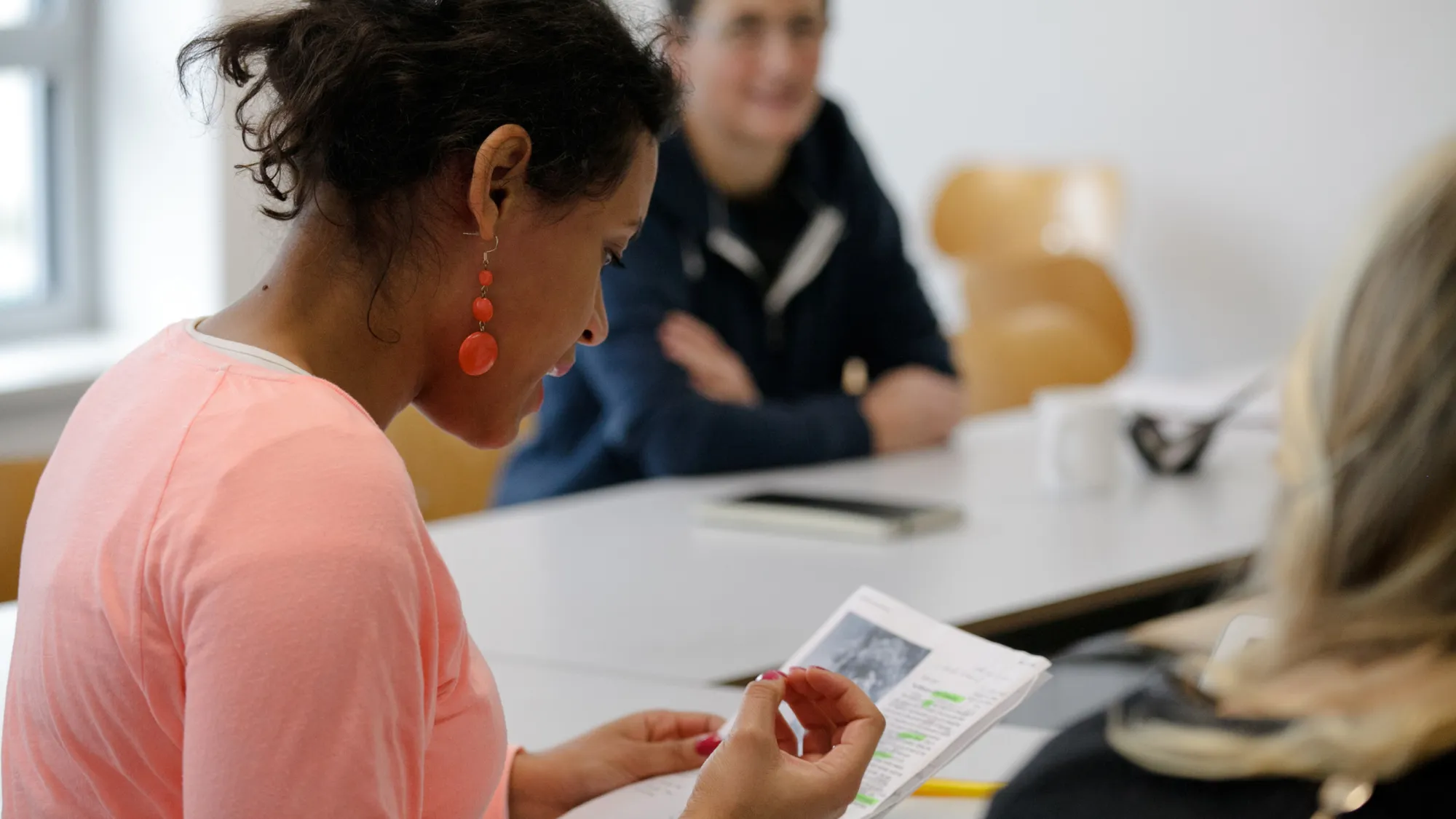
In study
On the pages of the CITY | BUILDING | CULTURE department you will find further useful information and documents on the degree programme, for example on the organisation of studies, the course catalogue and internship matters. In addition, current projects from the fields of study are presented there.
Application & Contact
Dates & requirements for your application
The most important deadlines, dates and admission requirements for the bachelor's degree programme in arts management and cultural work are compiled here. You can find out which steps you need to take for a successful application in the next section.
Dates
- 18th of June: Info day for Arts Management and Cultural Work
- until 15th of July: register and submit online application
- until 15th of July: apply for a higher semester to continue a degree programme you have already started at the University of Applied Sciences Potsdam.
Access requirements
- General university entrance qualification according to the Brandenburg university act: General university qualification or entrance qualification for studies at universities of applied sciences or previous vocational training recognised as equivalent
This is how you apply!
In the following, we explain to you which aspects you should pay attention to from the registration for the central allocation of study places to the matriculation (enrolment).
Further information
The following links provide you, and especially international applicants, with further information on the topics of application and enrolment at the University of Applied Sciences Potsdam.
International applicants
You would like to apply for studies from the first or a higher semester and have acquired your school-leaving qualification and/or university degree abroad? Then you can have degrees and achievements acquired abroad recognised and study with us.
Application & Enrolment Procedure
The application and study service provides information and advice on general questions regarding the application process, admission and enrolment at the University of Applied Sciences Potsdam, application for a higher semester, but also on topics such as compensation for disadvantages, part-time studies, waiting semesters and hardship applications.
Contact & Services
The student counselling service provides information and advice on general questions about studying as well as on topics such as choosing a degree programme, application, enrolment and study organisation.
For subject-specific questions on module content, credit transfer, examinations or specialisations in the arts management and cultural work degree programme, the subject counselling service is the right place to go.
Subject Counselling Service & Office of the Degree Programme
Study and Examination Service
Study Info Service
studien-info-service@fh-potsdam.de
bewerbungs-service@fh-potsdam.de
campuskarte@fh-potsdam.de
Study Service
studien-service@fh-potsdam.de
Exam Service
pruefungs-service@fh-potsdam.de
Family Affairs Commissioner
Office hours
Tue and Thu 9.30 am – 1.30 pm
Commissioner for University Employees with Impairment
Office hours
by arrangement

